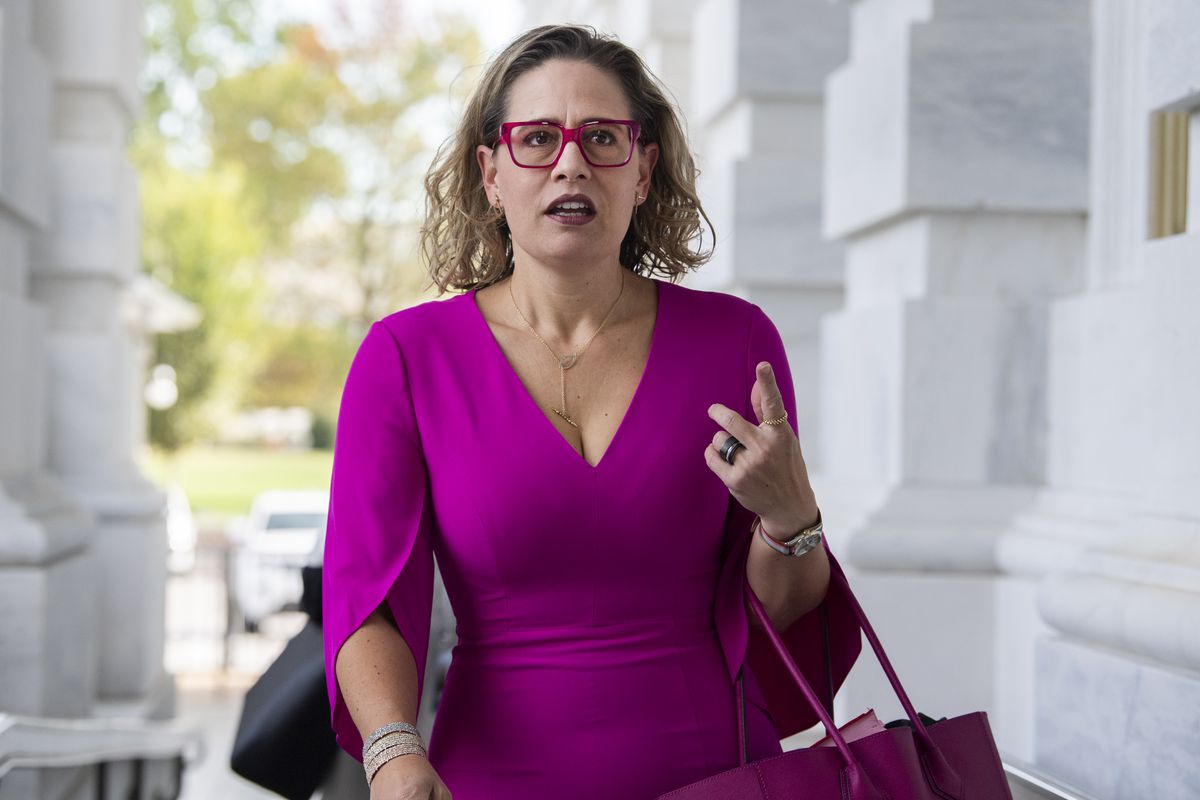Once upon a time, Senator Kyrsten Sinema from Arizona was an advocate against politicians exploiting the perks of their office. Back in 2018, she co-authored a bill aiming to curb the use of public funds by lawmakers for luxuries like “first class air travel.” She passionately expressed her discontent, stating that Arizonans were fed up with seeing their hard-earned tax dollars used for personal gain, particularly calling out “private luxury travel.”
Fast forward to 2024, and Sinema, now reportedly contemplating another term, appears to have become a caricature of the type of politician she once criticized. The Daily Beast recently reported on Sinema’s unusual spending of $210,000 in taxpayer funds on private chartered air travel since 2020—a practice she sought to ban just six years earlier.
The scrutiny doesn’t end with private air travel; Sinema’s latest campaign finance filings reveal extravagant spending on various perks. From stays at five-star European hotels and luxury vehicles to first-class airfare and indulgences at plush West Coast vineyards, the list goes on.
Notably, Sinema’s personal security expenses are staggering, with a burn rate of over $100,000 a month. Most of this amount goes to Vrindivan Bellord, the sister of Tulsi Gabbard, raising eyebrows due to the lack of transparency regarding the nature of these expenses.
Campaign finance filings expose Sinema’s leadership PAC, the “Getting Stuff Done PAC,” spending lavishly on her behalf. This includes over $5,800 on first-class airfare, stays at luxurious hotels in Paris and Madrid, and expenditures at wineries in California and Oregon. The PAC even paid for a security vehicle and various security-related expenses, including tickets to events and equipment.
Despite her spending on personal security, Sinema’s political fundraising has slowed, raising questions about her financial decisions as the 2024 election approaches. The senator’s leadership PAC, designed to support other candidates, has deviated from its intended purpose. Instead of making contributions to fellow politicians, Sinema appears to use the PAC to fund extravagant events at five-star resorts with corporate lobbyists.
The optics of Sinema’s spending habits, coupled with her anemic fundraising, suggest a challenging reelection battle against potential opponents. As observers analyze her every move to gauge whether she will run for reelection, Sinema’s risk tolerance and questionable spending choices are under increased scrutiny.
In the world of politics, where high-profile lawmakers face threats, the Federal Election Commission (FEC) tends to avoid second-guessing security spending decisions. While the FEC has not intervened, Sinema’s continued business relationship with Bellord, her association’s high burn rate, and the lack of clarity regarding security expenses raise ethical concerns.
As Sinema navigates the political landscape, her financial choices may impact donor confidence. Whether it’s spending on personal security or utilizing a leadership PAC for extravagant events, Sinema’s financial decisions have become a focal point, prompting donors to carefully consider where their money goes.
In the end, Sinema’s journey from critic to caricature serves as a cautionary tale about the complexities of political finance and the scrutiny that comes with it.















































